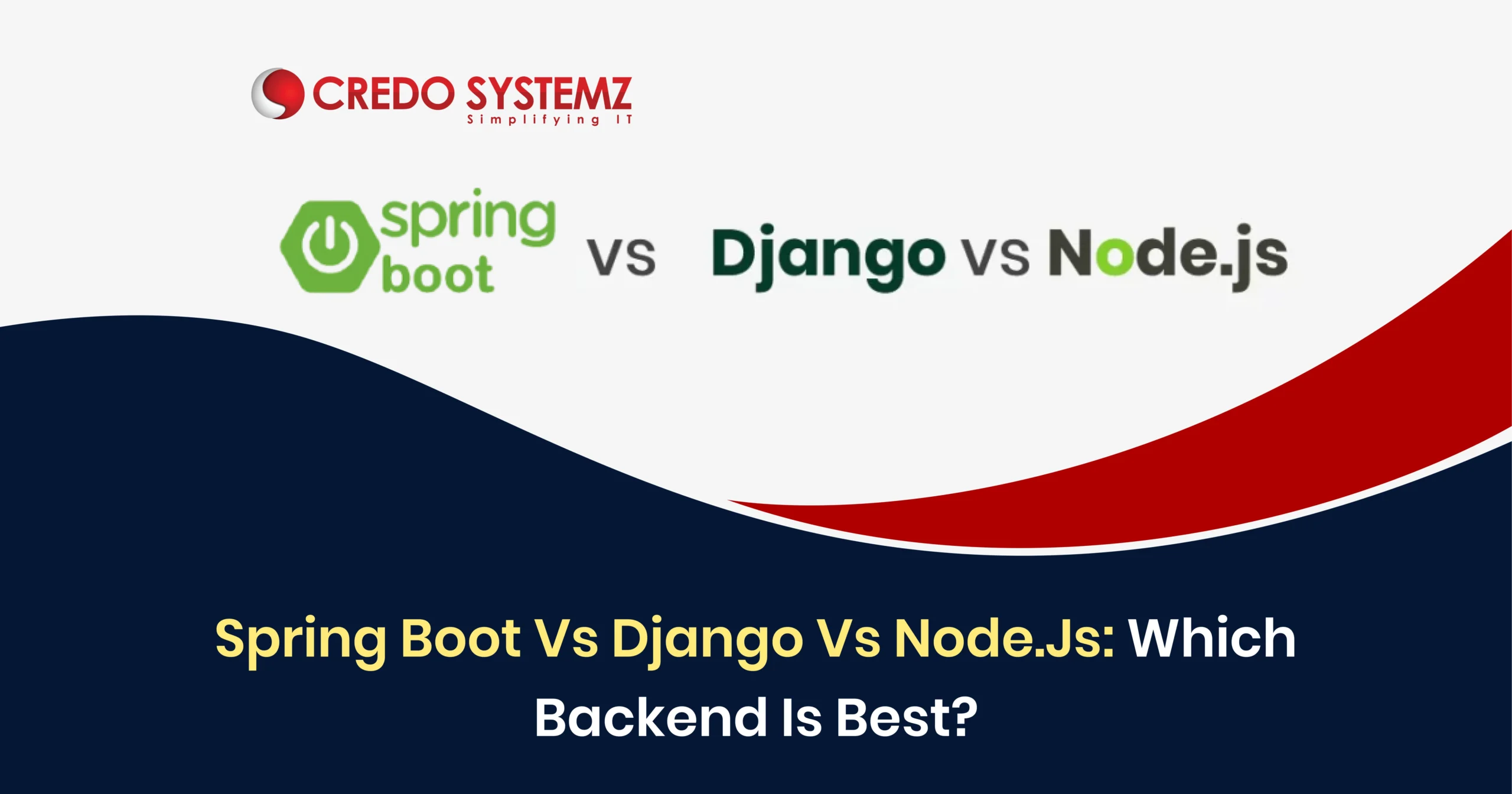
Spring Boot (Java)
Spring Boot is a framework which is built on top of the Spring Framework and designed to simplify Java-based application development. It eliminates boilerplate code and offers built-in tools for dependency management, embedded servers, and microservices development.
Spring Boot offers exceptional performance for enterprise-level and microservice applications. It is ideal for large-scale, high-concurrency systems with JVM optimizations and multithreading capabilities.
Django (Python)
Django is a high-level Python web framework that encourages rapid development and clean, pragmatic design. It has everything a developer needs to build robust, secure web applications from ORM to authentication and admin interfaces.
The performance of Django is sufficient for most use cases, but not as fast as Node.js due to Python’s synchronous nature. However, its scalability is strong when properly optimized with caching and database tuning.
Node.js (JavaScript/TypeScript)
Node.js is a runtime environment that allows developers to run JavaScript on the server side. It can be paired with frameworks like Express.js, Node.js is popular for building scalable, real-time applications with its non-blocking, event-driven architecture.
Node.js excels in performance for I/O-intensive and real-time applications like chat apps or streaming services. It is a single-threaded event loop that can handle thousands of concurrent requests efficiently.
Ease of Development
Spring Boot has a steeper learning curve due to Java’s verbosity and Spring’s ecosystem complexity. But once mastered, it offers strong type safety, reliability, and integration with enterprise tools.
Django is extremely developer-friendly due to Python’s simplicity and Django’s “batteries-included” approach. It allows building prototypes quickly and production-ready applications with minimal configuration.
Node.js is easier for developers familiar with JavaScript. It provides great flexibility and a massive NPM ecosystem, but managing asynchronous code and callback patterns can sometimes complicate large projects.
Ecosystem and Community
Spring Boot is backed by a mature ecosystem and used widely in the enterprise world. Django has a well-established community and a wealth of reusable packages for everything from authentication to APIs. Node.js boasts one of the largest open-source communities.
Spring boot offers excellent support for cloud deployment, microservices, and integration with databases and messaging systems. Django also supported by major organizations like Instagram, Spotify, and Mozilla.
The Node.js NPM repository offers millions of packages that ensure developers rarely need to start from scratch.
Security
Spring Boot offers enterprise-grade security with Spring Security which supports OAuth2, JWT, and advanced access control mechanisms.
Django is known for its strong security defaults with automatic protection against SQL injection, XSS, CSRF, and more.
Node.js Security depends on external packages and best practices. Developers need to be cautious when selecting third-party modules.
Best Use Cases
| Framework | Best For |
|---|---|
| Spring Boot | Enterprise applications, microservices, banking, and large-scale backend systems. |
| Django | Rapid development, startups, data-driven apps, and APIs for machine learning or analytics. |
| Node.js | Real-time apps, chat systems, IoT platforms, and modern single-page applications (SPAs). |
Pros and Cons Summary
| Framework | Pros | Cons |
|---|---|---|
| Spring Boot | Powerful, scalable, secure, mature ecosystem | Steep learning curve, verbose syntax |
| Django | Fast development, secure, easy to learn | Less performant for heavy I/O workloads |
| Node.js | High performance, lightweight, huge community | Callback hell, security risks with packages |
Final Verdict
Choose between Spring Boot, Django, and “>
Join Credo Systemz Software Courses in Chennai at
Credo Systemz OMR,
Credo Systemz Velachery
to kick-start or uplift your career path.
Node.js offers the best performance for real-time and I/O-intensive apps due to its non-blocking architecture. Yes, Django scales well with proper optimization and is used by large platforms like Instagram and Pinterest. Spring Boot integrates seamlessly with enterprise systems, provides high security, and supports microservices architecture. Django is the easiest to start with due to its simplicity, clear documentation, and built-in features.FAQ
